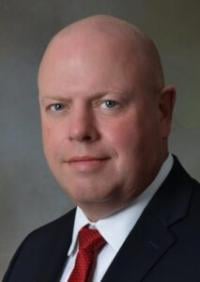There’s a new coalition in town, and its mission is to protect local control of 4.9 GHz spectrum used by public safety organizations across the country.
Specifically, the Coalition for Emergency Response and Critical Infrastructure (CERCI) wants to keep the 4.9 GHz spectrum under the control of public safety and critical infrastructure industry users and out of the hands of FirstNet, whose 700 MHz network is run by AT&T.
T-Mobile, Verizon and UScellular are among the founding members of the CERCI. Other founding members are the Competitive Carriers Association (CCA), National Sheriffs Association, Major Cities Chiefs Association and Edison Electric Institute.
The group sent a letter to the FCC this week outlining the importance of maintaining the 4.9 GHz band as a locally controlled public safety communications resource that serves the public interest.
They’re responding to a proposal from the Public Safety Spectrum Alliance (PSSA) that calls for the FirstNet Authority to be awarded a nationwide license for the 4.9 GHz band and to select a new band manager.
According to the CERCI, the PSSA proposal would eliminate local public safety choice and control, end current uses of the 4.9 GHz band and “suffocate ongoing user-led development of innovative public safety and critical infrastructure applications.”
Earlier this year, the FCC established a coordinated nationwide approach to managing the 4.9 GHz band, in part through the addition of a band manager, and it sought comment on how to implement that kind of model. The proceeding is still pending.
For its part, the FirstNet Authority, in an April 13 filing with the FCC, said any use of the 4.9 GHz spectrum for its network would be for public safety on a primary basis. It did not explicitly position the FirstNet Authority to be the band manager.
“First responders nationwide rely on FirstNet to better serve their communities, and opportunities to leverage the 4.9 GHz spectrum to enhance the broadband tools available to and the network experience for the public safety community would undoubtedly further the public interest,” FirstNet Authority told the commission.
Public safety & 4.9 GHz
Kenneth Corey, retired NYPD Chief of Department who was with the NYPD nearly 35 years, serves as chairman of the CERCI. Its policy advisor is Roger Sherman, former chief of the Wireless Telecommunications Bureau at the FCC and Democratic Chief Counsel of the House Energy and Commerce Committee.

Corey said he was somewhat surprised to see – not so much the PSSA’s proposal because that’s been floating around for a while – but FirstNet filing in support of that proposal. “That was a little surprising to me and from my perspective, very dangerous because local control is key here,” he told Fierce.
The NYPD’s department-issued phones run on FirstNet, but it also uses the 4.9 GHz band in a variety of ways that have nothing to do with FirstNet, he said. For example, bomb squad robots, which keep human officers safe, run on 4.9 GHz.
Elsewhere, the New York State Department of Transportation (NYSDOT) uses 4.9 GHz to backhaul traffic from video cameras. The New York City Transit (NYCT) uses 4.9 GHz for the subway system’s call box system and on buses. In California, Caltrans uses 4.9 GHz to manage traffic congestion and incidents on highways.
“This is not an anti-FirstNet coalition by any means,” Corey said. “There are a lot of agencies that use FirstNet, including the NYPD, and they’re very happy with the service they receive,” he said, adding that it’s also not an “anti-AT&T” coalition.
Verizon, T-Mobile weigh in
Both Verizon and T-Mobile are trying to woo public safety users to their networks, although T-Mobile is much newer to the space than Verizon.
In a May filing with the FCC, Verizon said the agency should adopt a band manager selection process that is open and transparent and includes existing public safety licensees. “The commission should reject calls for the First Responder Network Authority (FirstNet) to gain nationwide access to the 4.9 GHz band,” Verizon said. “A FirstNet role in the 4.9 GHz band, moreover, will undermine local control and competition that is serving the interests of public safety.”
T-Mobile delivered a similar message. “The commission should not allow a single entity that represents only one contemplated use of the band, such as FirstNet, to become the band manager,” T-Mobile told the commission. “That is especially true when an entity – like FirstNet – would potentially take a national approach to managing the band, frustrating the needs of the broader community of public safety users, which remain local.
The bottom line, according to the CERCI, is they don’t want local control to be taken away.
"Policing in an urban environment is much, much different from policing in a rural environment. The needs of those agencies are vastly different,” Corey said, adding that fighting a wildfire in the mountains of California is very different from fighting a building fire in the south Bronx. “You cannot take a one-size-fits-all approach to public safety,” nor to the communications they use.
The CERCI argues that incumbent public safety licensees within the 4.9 GHz must be protected so they can approve all spectrum leases that could impact their licenses and weigh potential changes to the band. “Above all, coordination and leasing rules for public safety broadband should align with the FCC’s broader goal of preserving and protecting local control of public safety operations in the band,” the coalition said.